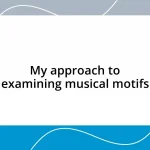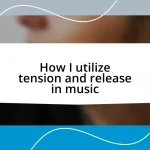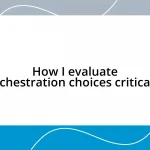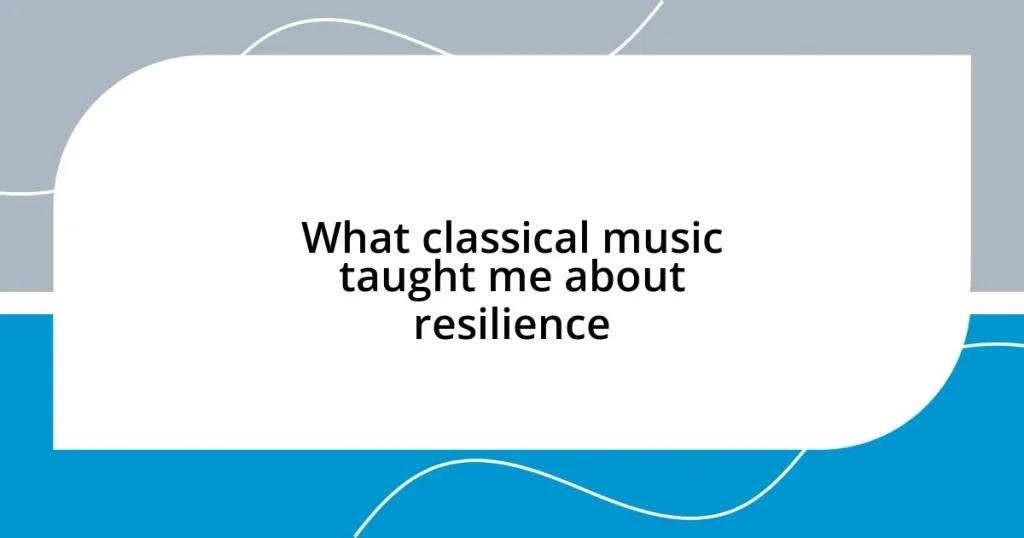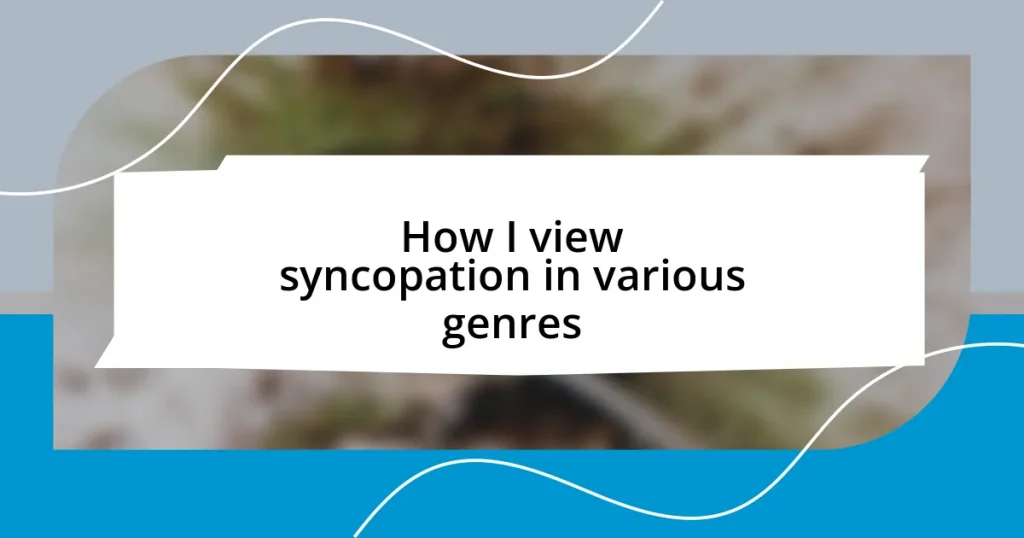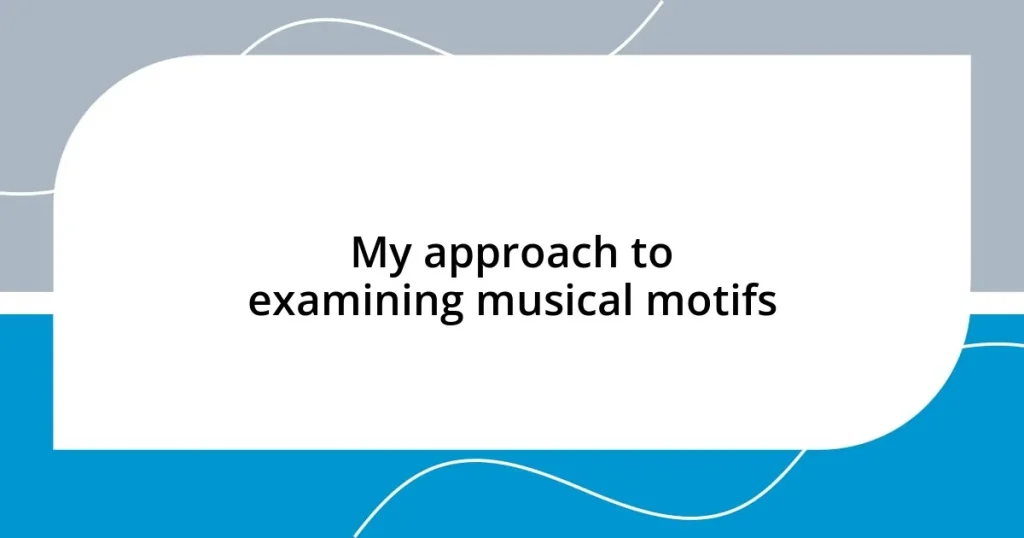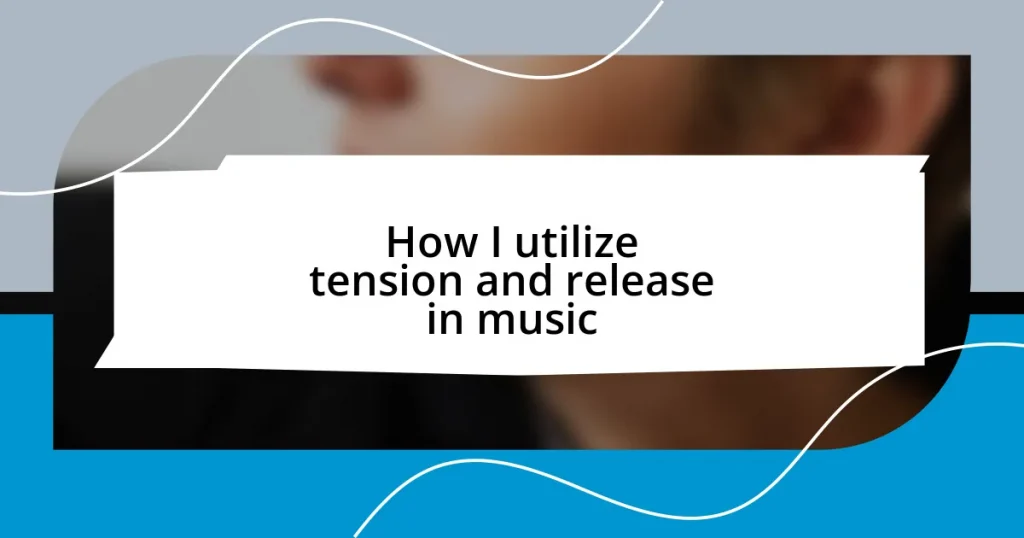Key takeaways:
- Resilience in music involves adapting to challenges and learning from mistakes, much like refining one’s craft after a setback.
- Performing classical music helps develop resilience by teaching the importance of maintaining composure under pressure and viewing setbacks as learning opportunities.
- Key composers, like Beethoven and Chopin, exemplify resilience through their ability to overcome personal and professional adversities, inspiring others with their creativity.
- Listening practices and collaboration in music underscore the value of reflection and support in building resilience, both in music and in life.
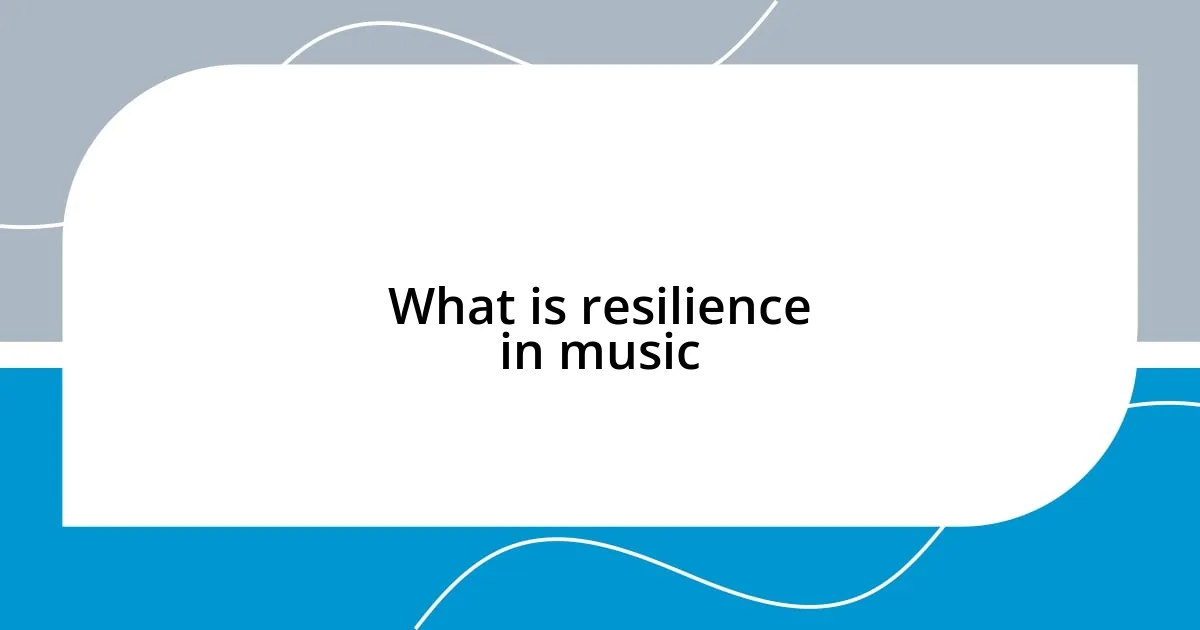
What is resilience in music
Resilience in music is the ability to adapt and bounce back from challenges, much like a musician refining their craft after a failed performance. I remember the first time I played in front of an audience and completely blanked out. That moment of panic was a wake-up call; I had to learn to embrace discomfort and use it as a catalyst for growth.
It’s incredible how a single piece of music can teach us about perseverance. For instance, when tackling a difficult sonata, I found myself frustrated time after time. But every struggle pushed me deeper into the material, and I discovered that each mistake became an opportunity to learn something new—can’t we all relate to that process in our own lives?
Ultimately, resilience in music isn’t just about getting back up; it’s also about the journey we take through this process. For example, I can recall the countless hours spent rehearsing a challenging piece, where progress felt painfully slow. Yet, every small victory, each note mastered, reignited my passion and reminded me that resilience is an ongoing dance between effort and reward—how often do we forget to celebrate our own incremental achievements?
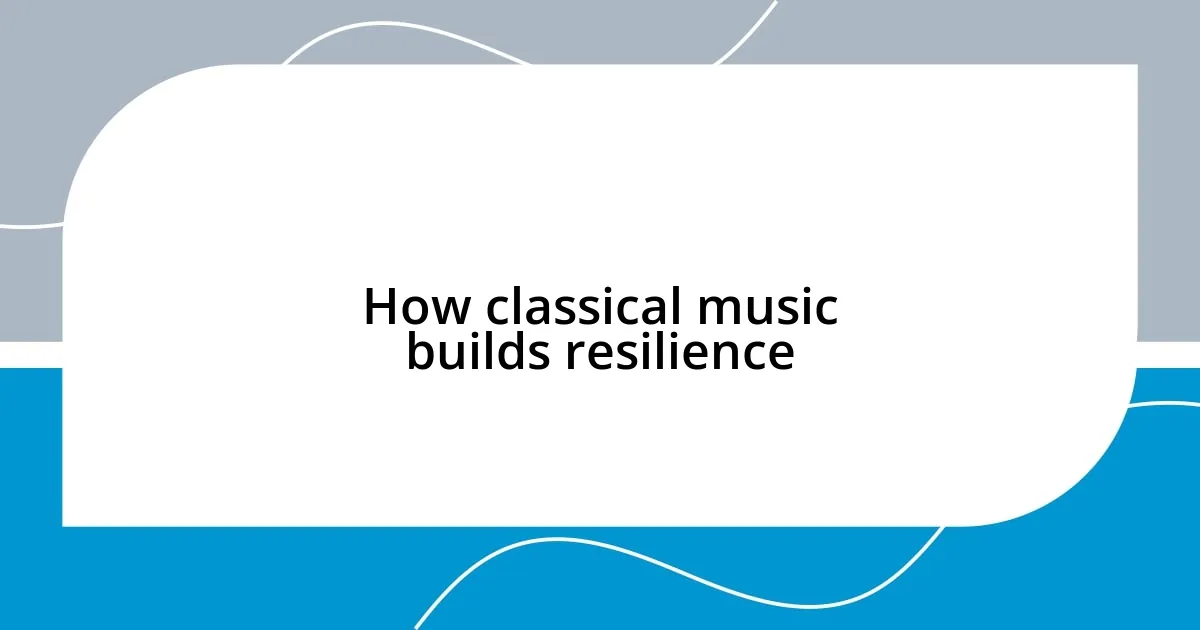
How classical music builds resilience
How classical music builds resilience is a fascinating journey. Engaging with classical compositions requires a level of introspection and discipline that mirrors life’s challenges. I’ve often found myself grappling with complex rhythms and intricate passages. The moment I hit a wall, I remember feeling a blend of frustration and determination to overcome. This struggle became a powerful teacher, allowing me to see setbacks as integral to my growth—often, embracing those moments led me to breakthroughs in my playing and understanding.
Moreover, performing classical music, especially in front of an audience, reveals a lot about resilience. During one concert, I stumbled during a particularly tough piece. Instead of allowing embarrassment to consume me, I took a deep breath, remembered the countless hours of practice, and carried on. This experience highlighted how resilience is not just about recovery but also about maintaining grace under pressure—it’s a lesson that transcends music. Have you ever felt your own heart racing in a similar situation, wondering how to remain steadfast?
Taking on the challenge of mastering a symphonic piece can also reinforce the concept of perseverance. I once spent months learning Mahler’s Symphony No. 5, each rehearsal presenting new hurdles. It was exhausting, and at times I wanted to give up. However, nurturing the tenacity to push through not only improved my playing but fortified my belief in my capabilities—resilience isn’t simply an innate quality; it’s a skill we can cultivate through our experiences.
| Key Aspect | Personal Reflection |
|---|---|
| Challenge Encountered | Frustration turned into determination during practice. |
| Performance Under Pressure | Overcoming a mistake in front of an audience reinforced my composure. |
| Long-term Commitment | Months of practice taught me persistence can lead to mastery. |
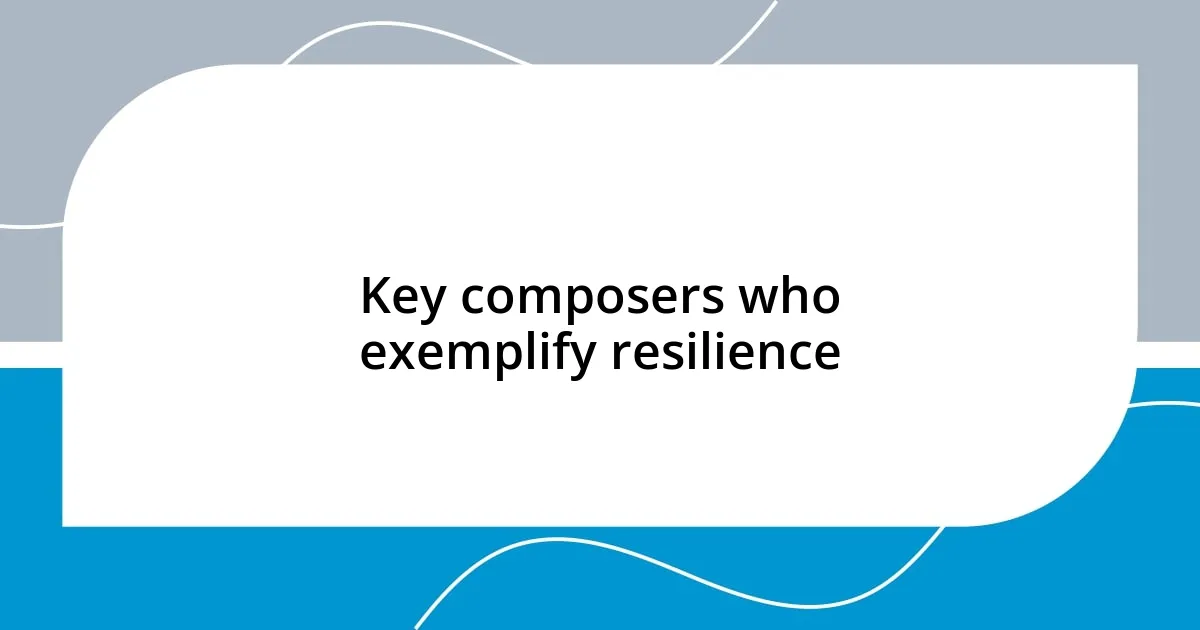
Key composers who exemplify resilience
Certainly! Exploring the resilience displayed by key composers gives us profound insights into their journeys. When I think about composers like Ludwig van Beethoven, I’m continually reminded of his remarkable ability to overcome adversity. Losing his hearing could have derailed many, but Beethoven turned this seemingly insurmountable challenge into a driving force for his creativity, producing masterpieces like the late string quartets and the Ninth Symphony. His determination to continue creating music, even when hearing it was impossible, resonates with anyone who has faced significant obstacles.
- Ludwig van Beethoven: Transformed personal trials into groundbreaking music despite profound deafness.
- Frédéric Chopin: His struggle with illness deeply influenced his compositions, capturing emotions of longing and sorrow that inspire resilience.
- Dmitri Shostakovich: Endured political oppression in Soviet Russia; his works boldly reflect his fight against adversity and his desire for artistic freedom.
- Johann Sebastian Bach: Faced family tragedies and professional challenges but found solace and strength in his faith, producing intricate works that echo his resilience.
Each of these composers not only created stunning music but also illustrated how resilience can be cultivated in the face of hardship, leaving lasting lessons that extend beyond their compositions.
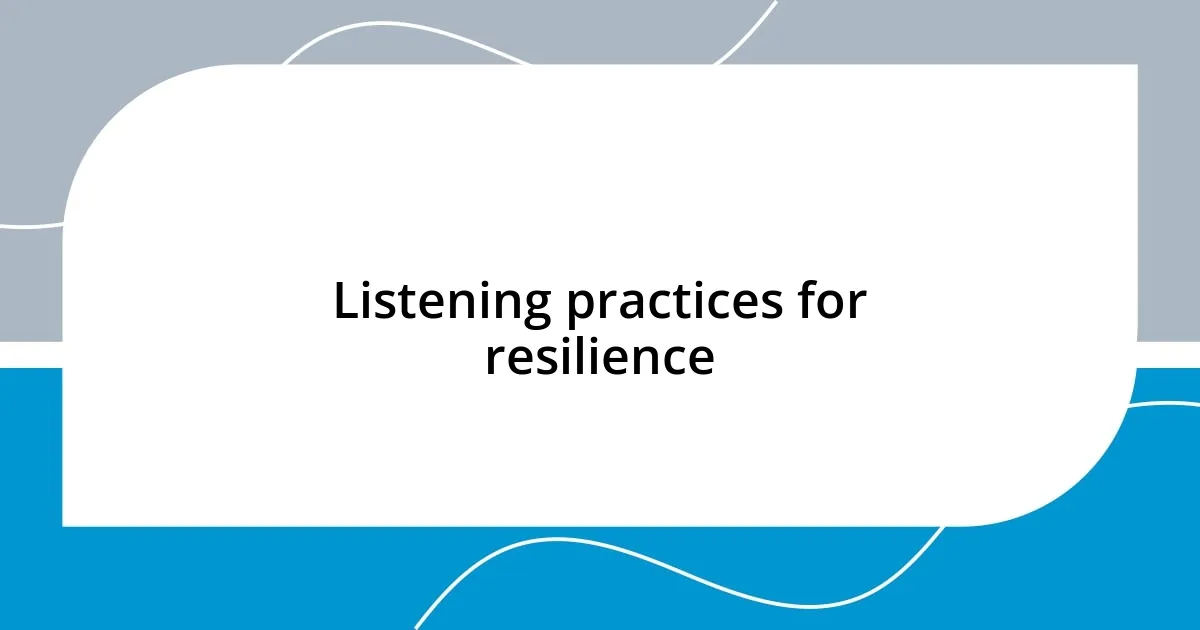
Listening practices for resilience
Listening to classical music isn’t just an auditory experience; it’s a practice that teaches resilience in subtle, profound ways. I remember a time when I was rehearsing Stravinsky’s “Firebird” and just couldn’t get the timing right. Frustration bubbled to the surface, but then I realized that each misstep was a stepping stone toward mastery. How many times in life do we overlook the value of our mistakes? Embracing those moments during practice not only improved my performance but reshaped my mindset—mistakes became valuable teachers.
In my experience, creating a dedicated listening practice has been transformative. I started scheduling specific times to sit down, close my eyes, and really absorb the nuances of pieces I love, like Tchaikovsky’s “1812 Overture.” During these sessions, I focus on the emotional journey of the music, allowing it to wash over me. This practice teaches me that resilience often requires us to step back, reflect, and recharge our emotional batteries. Have you ever tried listening with intention, allowing the music to guide your thoughts? This simple act has helped me cultivate mental clarity and emotional strength.
The power of live performances also plays a significant role in building resilience. I recall attending a concert featuring Brahms’ Symphony No. 1, where the orchestra faced several hiccups in the middle of the performance. Instead of faltering, they adjusted and created a beautiful moment out of chaos. It reminded me that resilience is not just about individual effort; it’s also about how we come together to support each other. Witnessing that live energy reinforced my belief that, through collaboration and shared experiences, we can overcome obstacles that might seem insurmountable alone. Isn’t it fascinating how music reflects life in such a vibrant way?
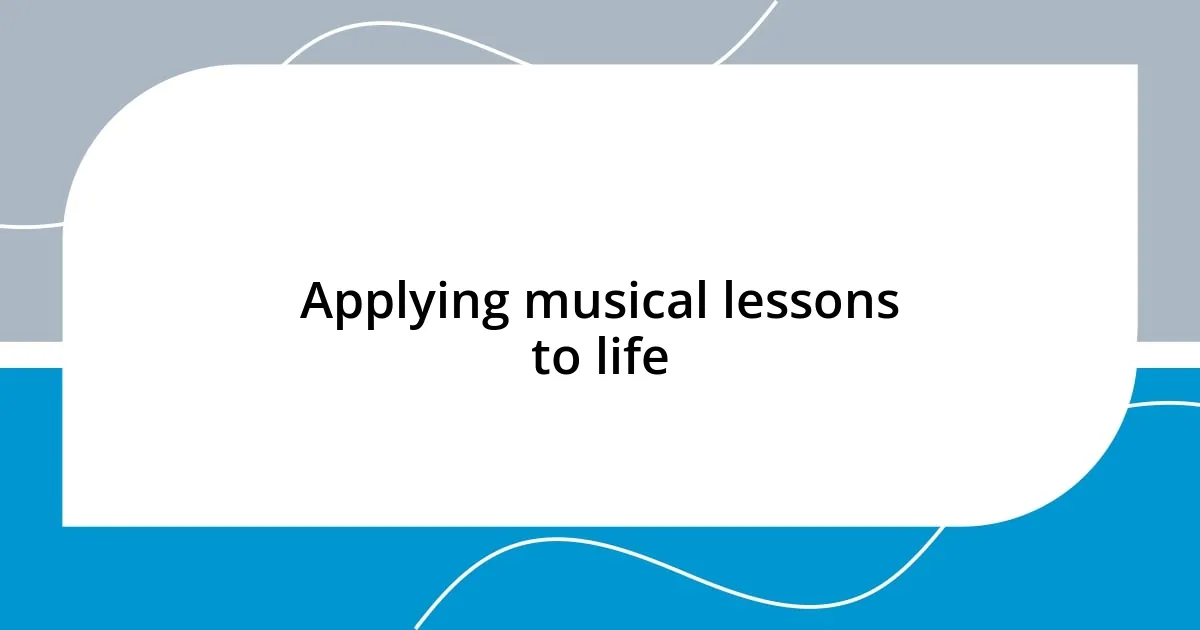
Applying musical lessons to life
Engaging with music teaches us that perseverance is key to growth. I vividly remember preparing for a solo recital; the pressure felt immense, and self-doubt crept in. It was during this time that I recalled how composers like Beethoven faced their own battles, channeling adversity into creation. Whenever I felt overwhelmed, I’d remind myself that every note, like every struggle, contributes to a larger masterpiece. Have you ever noticed how the most intense challenges often lead us to discover our strengths?
Applying musical lessons to life also means learning from our practice sessions. Each time I reached a plateau, the frustration could have easily derailed my progress. Instead, I shifted my perspective. I began viewing those plateaus as moments to refine my skills rather than failures. Much like a musician repeating a passage until it flows effortlessly, I found that embracing setbacks as part of the journey helped me build resilience in both practice and life. What if, instead of shying away from our obstacles, we faced them head-on, with the curiosity of a student eager to learn?
Collaboration in music mirrors the support we need in life. I recall joining a small ensemble, where everyone had a voice but sometimes disagreements arose over interpretations. Instead of allowing tension to fester, we embraced the differences that made our performances unique. This experience taught me that resilience often flourishes through dialogue and compromise. Isn’t it remarkable how the harmonies we create together can lead to a more profound understanding of ourselves and others?


